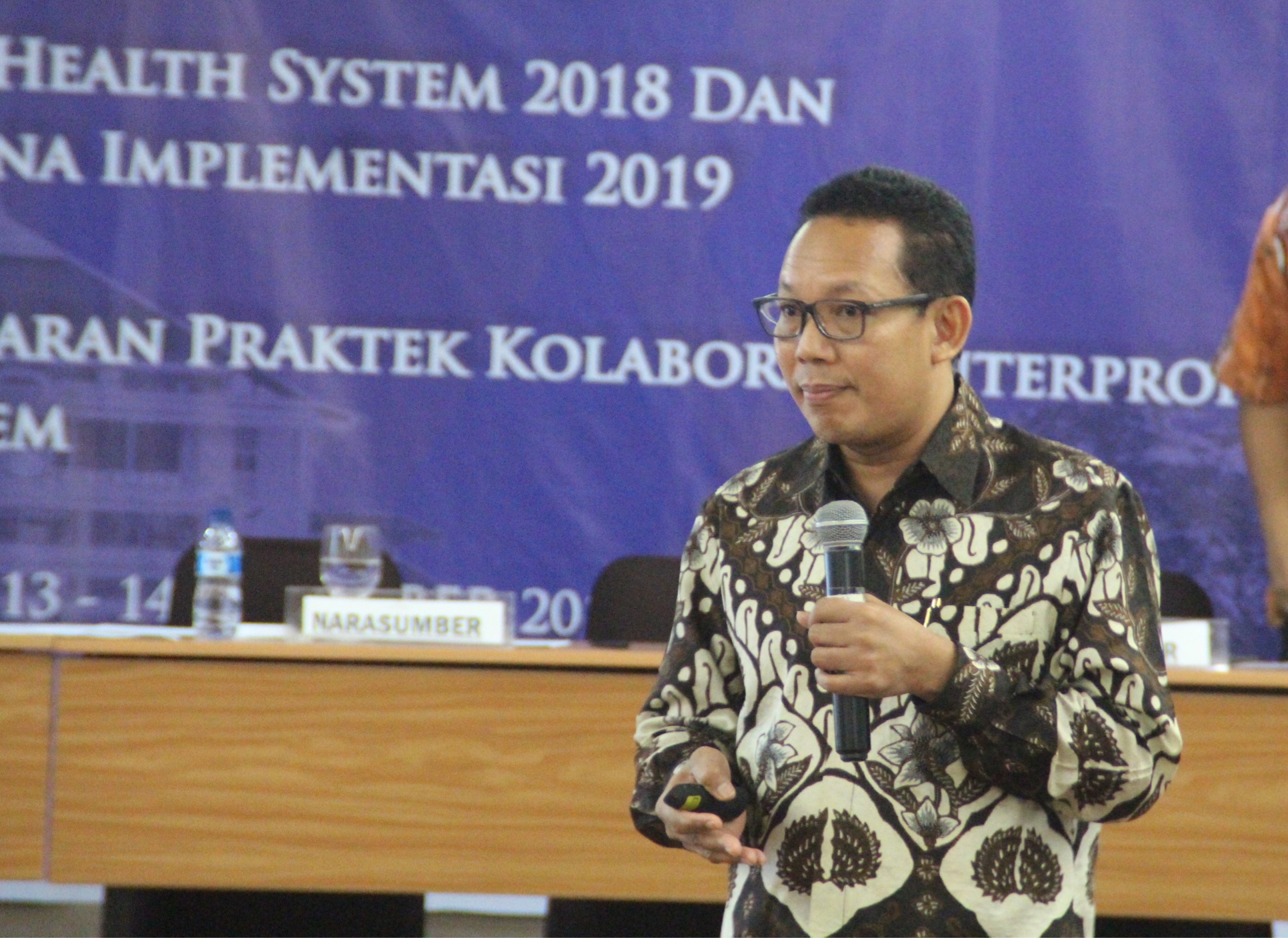UNAIR NEWS – The current arising problems not only come from developing countries but also from developed countries. This decade, developing countries have problems with underdeveloped education, unstable economic growth, low sanitation, and uneven distribution of health services.
Nowadays developed countries also have the gap in giving access to unsatisfactory care. It contradicts the cost of care and the continuity of service is not evenly distributed across all levels of society.
This condition inspired Universitas Airlangga to carry out a transformation effort entitled Academic Health System (AHS). AHS focuses on organizational systems, maintenance services, and the application of new technologies. AHS widely integrates the education system and health system, so that it can produce quality Human Resources (HR).
UNAIR formulated a strategic plan compiled in four pillars, including academic excellence, research excellence, community services excellence, and university holding excellence.
UNAIR organized a Workshop entitled “2018 AHS Achievement Evaluation and 2019 Program Implementation Formulation” in November 10 Room, 3rd floor, Santika Hotel, on Thursday, December 13.
The workshop is held for 2 days. The first day of the discussion was focused on the presentation of AHS evaluation, reflection on AHS implementation, discussion of the plan for UNAIR AHS development in 2019, presentation and formulation of implementation strategies for interprofessional collaboration practice learning modules in geriatric services by IPE team. While the second day of the workshop discusses the integrated geriatric patient management based on Patient-Centered Care.
“This process involves the academic community in other fields of medicine and health with related institutions such as hospitals, health centers, health agencies, and the community,” said Vice Rector IV, Junaidi Khotib, M. Kes, PhD, Apt in the workshop.
Junaidi Khotib said that the coordination of faculties (health groups in various fields) with the government and society would create the best community development in health services. In addition, the availability of comprehensive profiling in health is very beneficial for policy making and efforts to improve welfare.
National working unit team Prof. dr. Irawan Yusuf, MD, Ph. D and Dr. dr. H. Slamet Riyadi Yuwono, DTM & H, MARS. M.Kes also gave direction related to AHS, that the draft of AHS requires the development a strong network through the aspects of Tri Dharma of Higher Education and involves various institutions. AHS UNAIR must act as provider of last resort.
Furthermore, Head of AHS Prof. Dr. dr. Soetojo, SpU (K) said that UNAIR as a pilot project along with other renowned universities, UNHAS, UI, UGM and UNPAD will continue to improve health quality services in Indonesia.
“The success of AHS must be accompanied by an epic coordination system with stakeholders,” concluded Prof. Dr. dr. Soetojo. (*)
Author: Tunjung Senja Widuri
Editor: Binti Q. Masruroh





